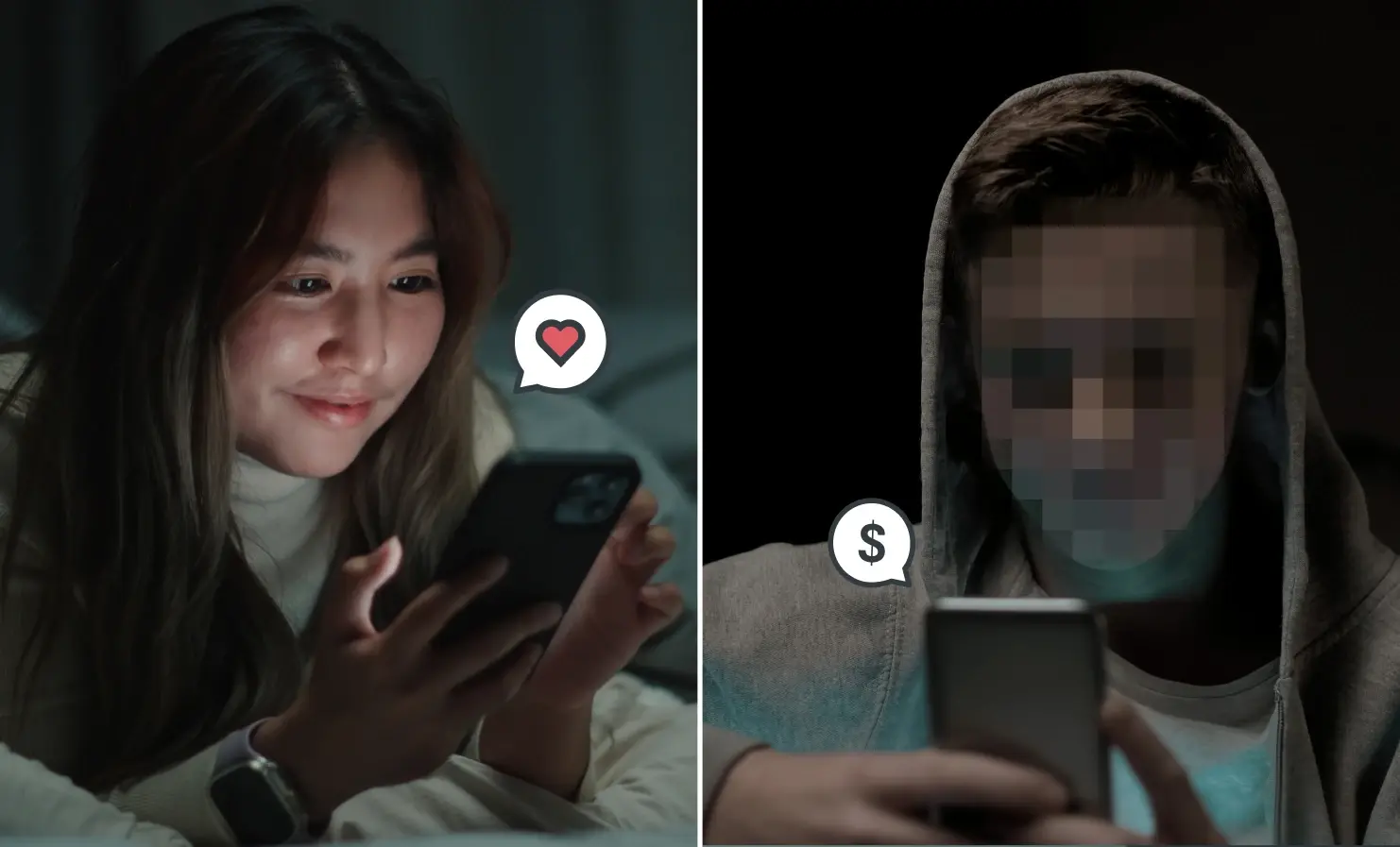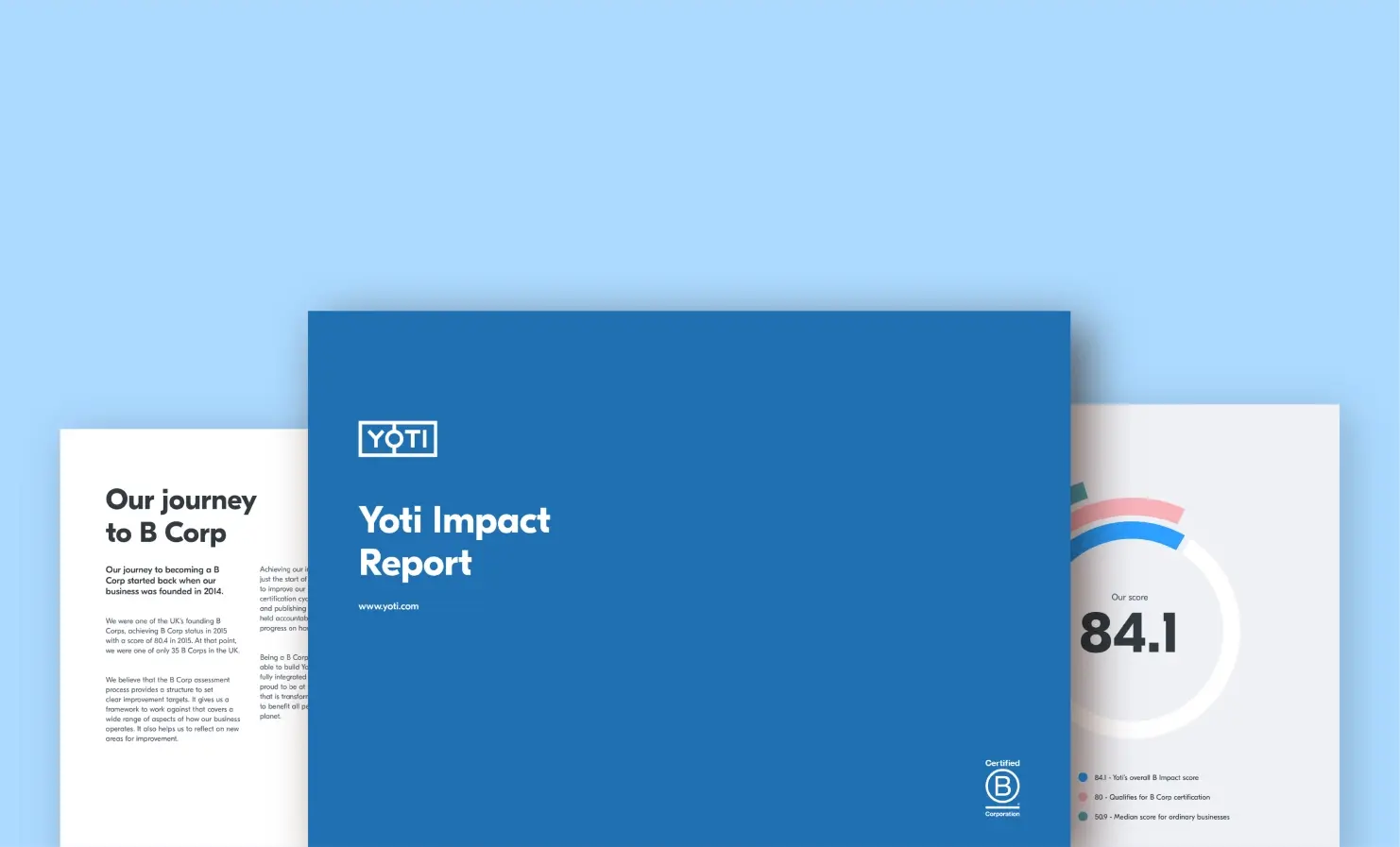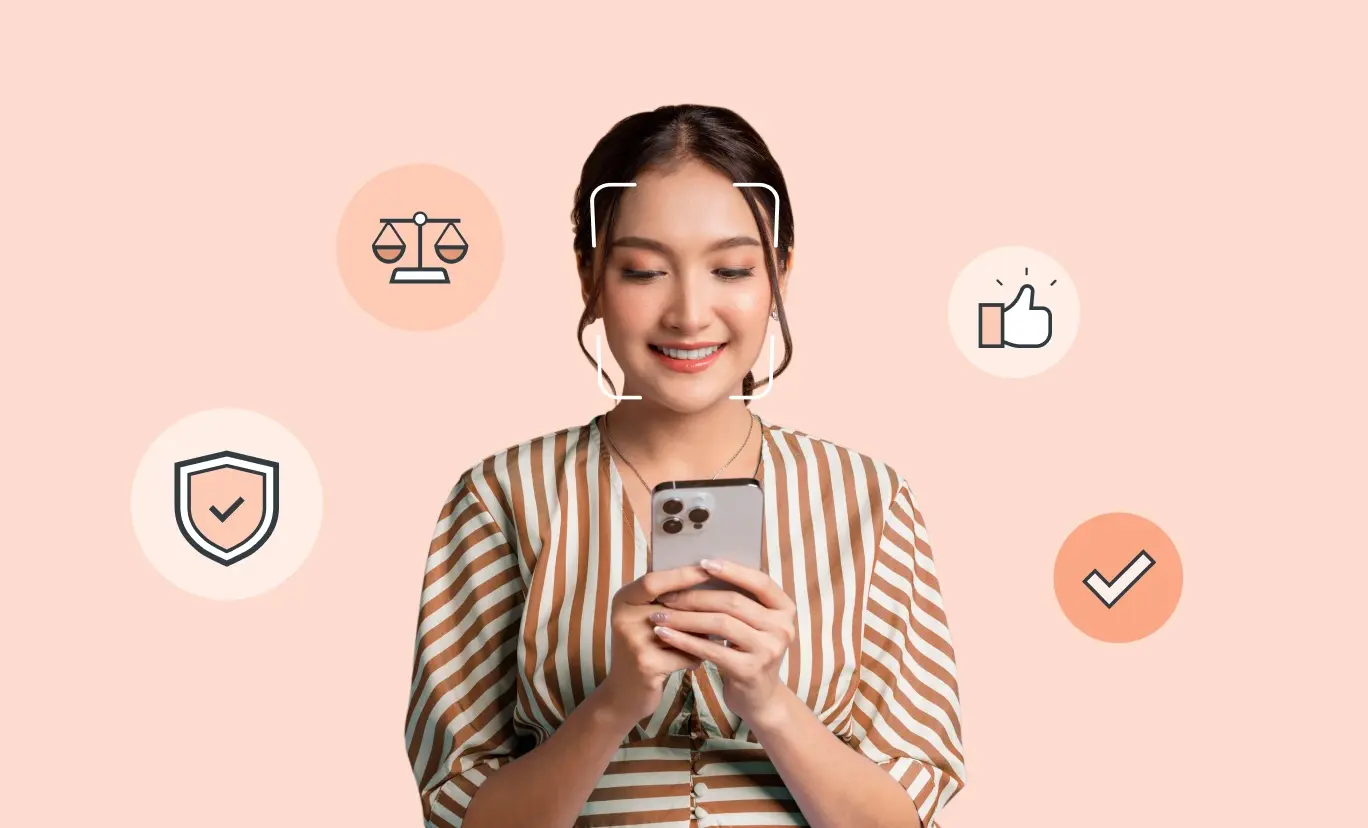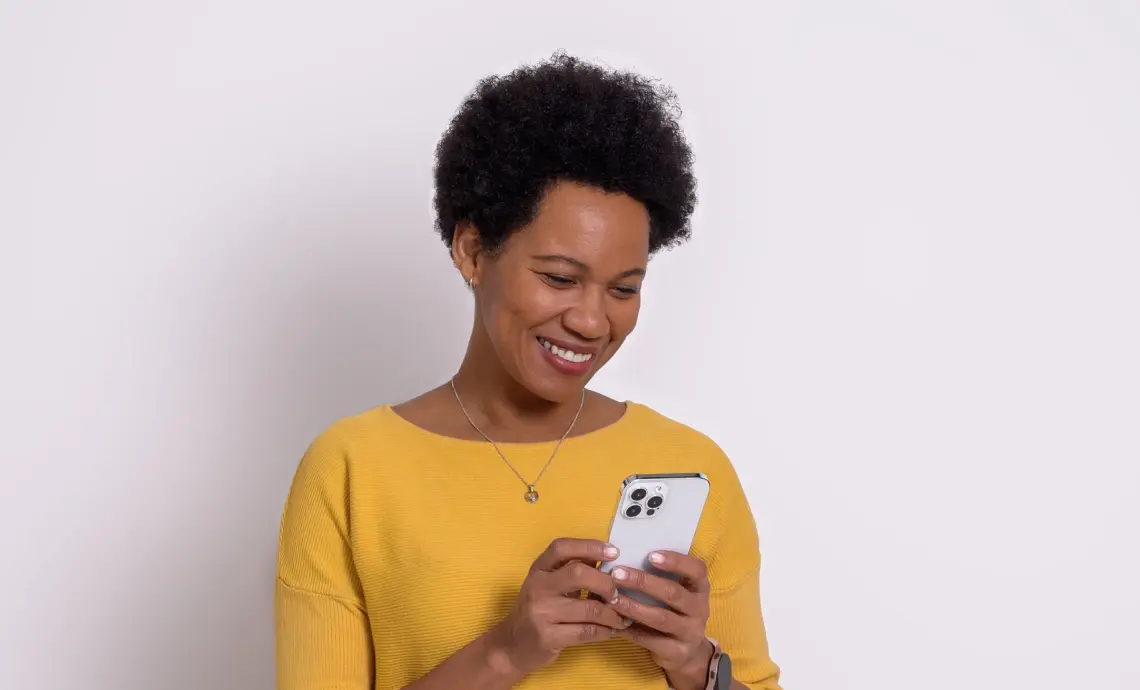
It is said that love makes the world go round. But as genuine daters are looking for love, there’s a growing risk of falling into a scammer’s trap.
In this blog we explore the impact of romance fraud, common tactics used by fraudsters and how daters can protect themselves in their search for love.
What is romance fraud?
Romance fraud occurs when a scammer uses a fake profile and false identity to trick unsuspecting people on dating sites. They usually do this for fraudulent reasons and financial gain.
The fraudster will often go to great lengths, convincing someone they are in a real relationship together and playing on this trust to deceive the other person. To make the relationship seem real, romance scammers will build this trust over time.
What is the impact of romance fraud?
Romance fraud has surged by more than 60% over the last four years. With the growing popularity of dating apps, it’s no surprise that these numbers continue to climb.
The financial impact of romance fraud can be devastating. In the UK, the cost of dating scams has exceeded £400m over the past five years, with reports of romance fraud rising by 27%. However, the true scale of romance fraud is unknown, given many victims don’t report the crime.
Fraudsters aren’t always after money or financial information though. They might be after your personal details, using these to apply for credit, open social media accounts or take out a mobile phone contract. The first you might know about this is when an unexpected bill arrives in the post.
Common types of romance scams
Here are some red flags that might show you’re communicating with a romance fraudster. These may not be immediately obvious, as scammers often spend time building trust before deceiving their victims.
Some common types of romance scams include:
- Requests for money: they might say they need money for personal reasons such as supporting family back home, paying back debts or other sob story. Often romance scammers claim they need emergency medical treatment or need to visit a relative overseas.
- Staying secretive: they might ask you lots of questions about yourself but won’t share much information about themselves. They are usually doing this to commit identity theft – using your personal information to open bank accounts or apply for credit in your name.
- Wanting to chat elsewhere: romance fraudsters will often ask you to chat on another platform – over text, email or the phone.
- Expressing their love: They might say they love you very early on.
- Last minute emergencies: they might be planning to visit you or arrange a date in person, but then keep cancelling due to last minute ‘emergencies’.
How romance scammers are using AI and deepfakes
Romance scammers will usually create a fake profile (or several) using completely made up details. A false name, age, photo – the works. Sometimes they use another person’s real photo or details. Recently, comedian Bob Mortimer found his details on a dating site. Another victim found his photo used on dating sites for over ten years.
Fraudsters are upping their game though. Their latest tactic involves using deepfakes – a digitally manipulated image or video that can look real – to trick innocent people on dating sites. They then use these false identities to have live video calls with daters.
Genuine daters believe they are speaking to a real person, and in many instances, they think they’re in a real relationship with that person. In reality, they are talking to a scammer. As scammers evolve their tactics, it’s more important than ever to be vigilant and stay safe online.
Tips for safe online dating
There are some simple ways you can protect yourself when dating online:
- Be wary about sharing too much personal information until you know exactly who you’re speaking to. If you’re talking to someone who is asking you lots of questions or pressuring you to share personal information, it could be a trick to get your personal details.
- Never send money or share your banking details to someone you‘ve only met online. This is a big red flag and you should report the profile or any suspicious behaviour to the dating site immediately.
- Consider using a dating site which has extra safety measures. This might include identity verification on account creation.
- Take things slow. It can be easy to get caught up in the excitement of meeting someone new. But if something doesn’t feel right, then trust your instincts and stop speaking to that person. Talk to your friends and family about it, and don’t be afraid to report that person to the dating site.
- If you’re unsure whether you’re talking to a real person, use a Digital ID app to swap information with another dater. More on this later.
How dating sites are improving security
We are proud to be working with several dating sites to make online dating safer:
Muzz uses our photo verification technology to confirm every dating profile belongs to a real person. On account creation, users must take a selfie. If our technology detects the image is not from a real person, they will need to take another selfie. This is helping to reduce the risks of fake profiles and catfishing.
Muzz is also using identity verification to boost online safety even further. This verification is optional for users. Those who choose to verify their identity will have their profile boosted, giving them a higher chance of connecting with more people.
All new users on Muslim Marriage Services must verify their identity using the Yoti ID app. By verifying every person, Muslim Marriage Services is offering enhanced user verification and a safer space for people to meet. Since introducing Yoti, the platform has seen a 300% increase in new profiles created. Users have praised the extra trust, safety and security that come from the identity checks.
Facebook Dating uses our facial age estimation technology to confirm only those aged 18+ can sign up to the service.
Building a safe online dating community
If you’d like extra reassurance about who you’re speaking to online, use a Digital ID.
With the Yoti ID and Post Office EasyID apps, you can swap verified details with another person. It’s a free, simple and effective way to know exactly who you’re talking to online.
When someone creates their Digital ID, we verify their details against an identity document like a passport or driving licence. So you can be confident that any details shared with you are real and legitimate. This stops scammers from hiding behind a fake profile or deepfake video. Read more about deepfake laws and know your right.
Download a Digital ID and protect yourself from romance fraud.
Useful resources:
If you have been the victim of actual or attempted fraud, report it to Action Fraud, the UK’s national fraud reporting centre.



